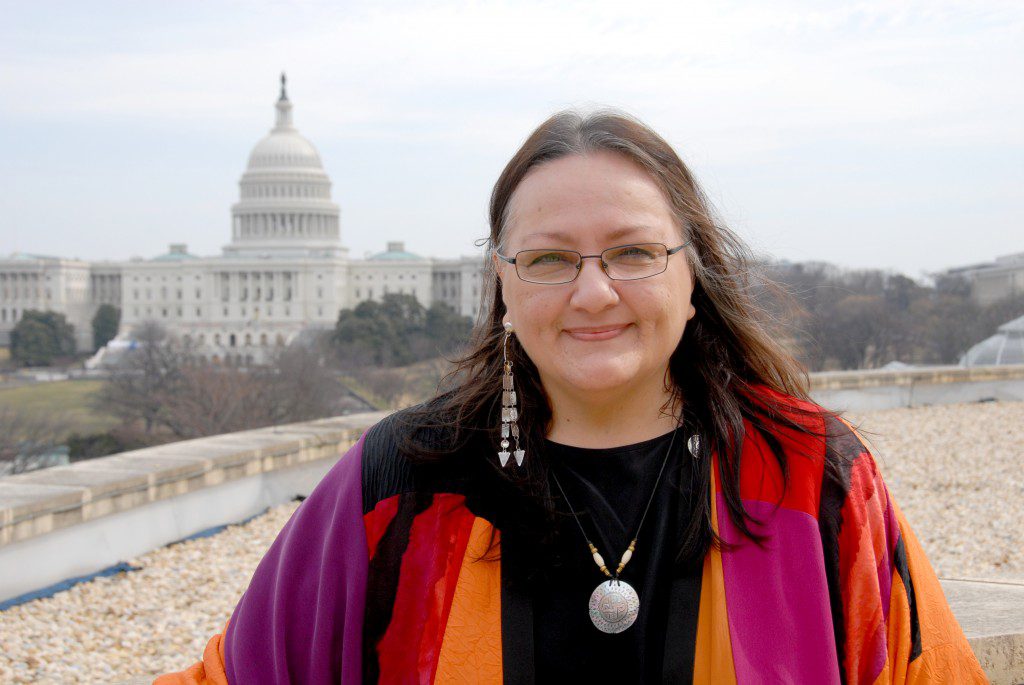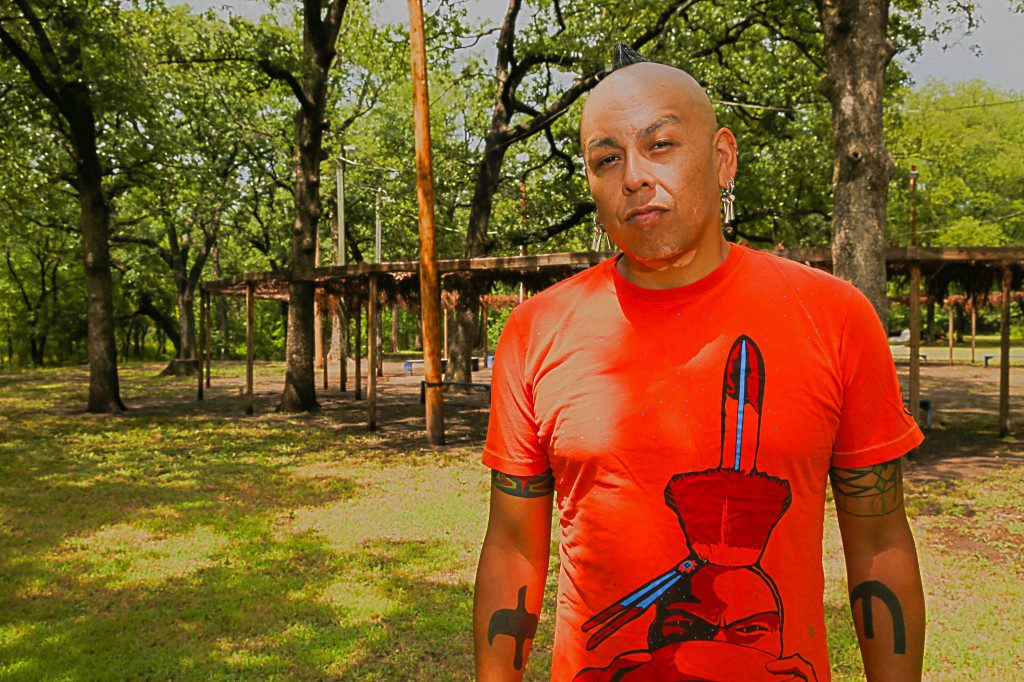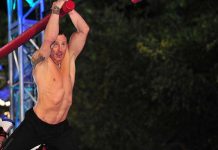
In June, Cheyenne and Muscogee activist Suzan Harjo heard the gavel come down on a 17-year-old case. The U.S. Patent and Trademark Office cancelled the trademarks held by the Washington Redskins. The name, offensive to many American Indians, is on its way out. But while Harjo and colleagues celebrated, others booed, insisting that it was a case of political correctness gone too far.[pullquote]“None of us knew anything about policymaking. We knew our own tribal jurisprudence, how things were resolved and the penalty for this or that. But we didn’t know Washington, (D.C.), and it’s a whole different creature with its own set of rules.”[/pullquote]
“The whole issue is about objectification. It’s about overlaying our reality with false identities. Any time that people are standing up and saying, ‘We want this area of racism cleaned up and removed,’ it’s not political correctness. That’s civil rights. That’s human rights. That’s what we’re engaged in,” she says.
The NFL team is only the latest group to be on the business end of Harjo’s activism. She’s been doing this since her college days, and everything she knows, she taught herself. Born in El Reno, Okla., she started down the path of activism beginning in 1967 during tribal gathering. Tribal elders invited members to discuss the treatment of sacred objects by museums and educational institutions.
“What we did at that meeting was to envision The National Museum of the American Indian. We envisioned what a museum that did it right would be,” she says.
After a stint as communications director and then president of the National American Indian Congress, Harjo went on to found the Morning Star Institute in 1984. Today, she serves as its president. It focuses on both traditional and cultural rights, acting as a national native rights organization that embraces a variety of causes.
“None of us knew anything about policymaking. We knew what we’d studied. We knew a lot of things. We knew our own tribal jurisprudence, how things were resolved and the penalty for this or that. But we didn’t know Washington, (D.C.), and it’s a whole different creature with its own set of rules. All of this was us learning as we went,” she says.
As a guest curator for the NMAI, Harjo will open the exhibit Nation to Nation in September. Through the lens of legal treaties, the exhibit takes a hard look at the federal government’s relationship with indigenous societies. A published poet and writer, Harjo edited the exhibit’s companion book of the same name.
At 69, she embraces her work with the same enthusiasm she showed when she first arrived in Washington, D.C. Even with three decades of life in the capital under her belt, there’s still plenty left to learn and do.


























